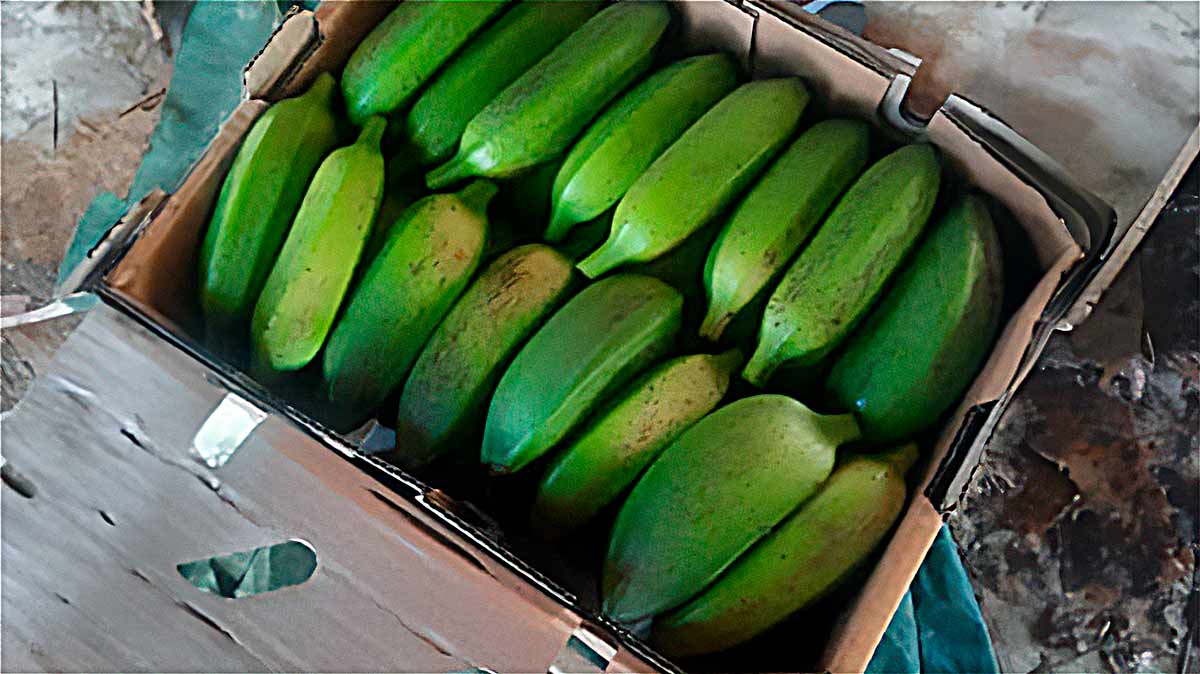Cuba Announces Readiness to Export Plantains to Canada

The Cuban government, under President Miguel Díaz-Canel, has announced its readiness to start exporting ‘plátano burro’ (a type of plantain) to the Canadian market.
This development was shared on social media by the Ministry of Foreign Trade and Foreign Investment (MINCEX), highlighting the role of the Agro-Industrial Company Las Tunas (AGROINT) in spearheading this initiative.
AGROINT has been identified as Las Tunas’ first exporting enterprise, marking a significant stride in Cuba’s business landscape and promoting foreign investment opportunities.
MINCEX’s announcement, tagged with the phrase “This is the Revolution”, has stirred diverse reactions online, sparking a debate over whether this represents a proud achievement or an acknowledgment of deeper challenges.
The Cultural and Economic Role of ‘Plátano Burro’
Widely consumed for hunger relief in Cuba, the ‘plátano burro’, also known as ‘fongo’ in the island’s eastern parts, is one of the most affordable and humble foods cultivated in the country.
The decision to export this plantain variety to Canada is quite unexpected, especially considering its culinary inferiority compared to other types like bananas or ‘plátano macho’, which are staples in Cuban cuisine used in various dishes from ‘chicharritas’ to ‘tostones’ and green plantain ‘fufú’.
The potential shift of ‘plátano burro’ to an export commodity raises concerns about its future availability and affordability in Cuba, particularly amidst widespread food shortages. How will this impact the Cuban cuisine and the common man’s diet?

Public Concerns and Reactions
The looming question remains: how will this export venture affect the local prices of ‘plátano burro’, which already hit 100 Cuban pesos per bunch in Las Tunas in April?
In 2017, Cuban scientists developed an insect-resistant clone of ‘plátano burro’, a move encouraged by the then-Agriculture Minister, Gustavo Rodríguez, to meet high public and tourist demand.
A 2021 Cubadebate article praised the nutritional value of plantains, noting their historical use by English slave traders to feed slaves en route to America and the Caribbean.
Social media reactions to MINCEX’s post range from resignation to concern, with comments reflecting the populace’s anxiety over the potential scarcity of this staple food.
Government Perspective and Looking Ahead
Amidst these concerns, Alejandro Gil Fernández, Minister of Economy and Planning, urged confidence in the revolution and socialism as the solution to daily food challenges.
The government appears to be focusing on balancing trade and exploring the Canadian market’s opportunities, even if it means local sacrifices in food availability.
While exporting ‘plátano burro’ to Canada marks a significant step for Cuba in international trade and relations, it also brings to light crucial questions aboutbalancing internal market needs with export opportunities. How will these decisions impact the daily lives of Cuban citizens?

The Balance of Trade and Food Security
The government’s stance indicates a focus on improving Cuba’s trade balance and seizing international market opportunities.
However, this strategy raises critical questions about the impact on food security within Cuba. The potential decrease in local ‘plátano burro’ availability due to exports could exacerbate the current food shortage crisis.
The public’s concerns, as voiced in social media comments like “We’re doomed, there goes our plantain puree and tostones,” highlight the apprehension over losing a dietary staple.
The Future of Cuban Cuisine and Agriculture
The export of ‘plátano burro’ to Canada could redefine the landscape of Cuban agriculture and cuisine.
The government’s encouragement of such exports, as seen in previous initiatives for agricultural development, suggests a shift in prioritizing international markets over local consumption.
This decision, while economically beneficial, could have a profound cultural impact, potentially altering traditional Cuban dishes and eating habits.
As Cuba ventures into the export of ‘plátano burro’ to Canada, the move is seen as both an opportunity and a challenge.

It reflects the government’s effort to enhance international trade relations and economic growth. However, it also underscores the need to balance these ambitions with the pressing issue of food availability for the Cuban people.
The direction Cuba takes in managing this balance will be crucial in shaping its economic and cultural future.






